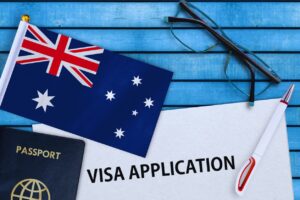Visitors, international students & temporary overseas employees in Canada have many options to extend their stay.
Immigration, Refugees and Citizenship Canada (IRCC) offers a number of options for candidates to remain in Canada while awaiting for temporary permit residence decision.
For example, if temporary residents apply for a new temporary status & their papers expire before the decision taken by the IRCC, they do not have to leave Canada. Students, travellers and temporary overseas workers with retained status may remain in Canada under the same circumstances as with their prior approval until their new application is approved.
While some temporary residency permits are renewable and extendable, others, such as the work permit after graduation are not not. However, this does not necessarily mean that these workers may not be entitled to another work permit.
While it is an option for many, applying for a Temporary Resident Visa (TRV) in Canada is usually not a good idea as it does not allow you to work or study. Individuals with a TRV may be able to apply for visitor registration, which allows them to stay longer than 6 months but not work or study. In some situations, those who qualify for a work permit may have the option to stay. In this article, we take a look at where people can stay if they benefit from the following:
- Work Permits
- Study Permits
- Post-Graduation Work Permits
- Bridging Open Work Permits
- Spousal Open Work Permits
Work Permits
Work permits in Canada fall into 2 categories: those that require a positive or neutral Labor Market Impact Assessment & those that do not.
The purpose of an LMIA is to demonstrate to the Canadian government that there is a real need for overseas employees to fill a vacancy. The LMIA process must be performed by the company, not the employee. The employer will provide the employee with a copy of the confirmation letter when the Employment and Development Services of Canada (EDSC) issues the employer with a positive or neutral LMIA. Then the worker applies to IRCC for a work permit.
To address the recognized labor shortage, several work permit programs offer streamlined LMIA processes. The Global Talent Stream (GTS), for example, allows companies in qualified technology occupations to skip the LMIA advertising requirement and thereby reduce processing time. The processing time for GTS work permits is 2 weeks. In addition, the province of Québec has its own list of occupations, which simplifies LMIA processing.
Study Permit
Getting a study permit may allow you to remain in Canada if it makes sense for your job and financial situation. During the academic year you can work part-time & full-time during fixed breaks.
Firstly you need to be admitted to a Designated Learning Institution (DLI) in order to receive a study visa. Then you can use your letter to apply(ITA) for a study visa in Canada.
If you successfully complete your program, you may be able to stay in Canada under the PGWP (if you’ve never had one). You are also entitled to special paths to permanent residence abroad for international students.
Post Graduate Work Permit (PGWP)
For international students who have pursued a post-secondary degree from an accredited Designated Learning Institution (DLI), the Postgraduate Work Permit (PGWP) may be an option to remain in Canada(DLI).
Study programs longer than 8 months but less than 2 years may be entitled for a PGWP equal to their duration. International students who have completed programs of at least 2 years may qualify for a 3 year PGWP.
Bridging Open Work Permit (BOWP)
The Bridging Open Work Permit (BOWP) allows some PR applicants to remain in Canada after their temporary status has expired.
Spousal Open Work Permit (SOWP)
Spousal sponsorship may be an option if your spouse or common-law partner is a Canadian citizen or PR. If you are applying for a sponsorship within Canada, you are considered a local candidate and may be entitled for a Spousal Open Work Permit (SOWP) specifically designed for spouses and common-law partners of Canadians in the immigration process.
Spouses of temporary residents may also be entitled for an open work permit. Foreign temporary workers must meet certain eligibility requirements, such as Holding a 6 month work permit after obtaining an open spousal work permit.
Spouses of international students can receive an open work visa if they can show that they are in a genuine relationship & that their spouse is an overseas student enrolled in a government-approved program.




